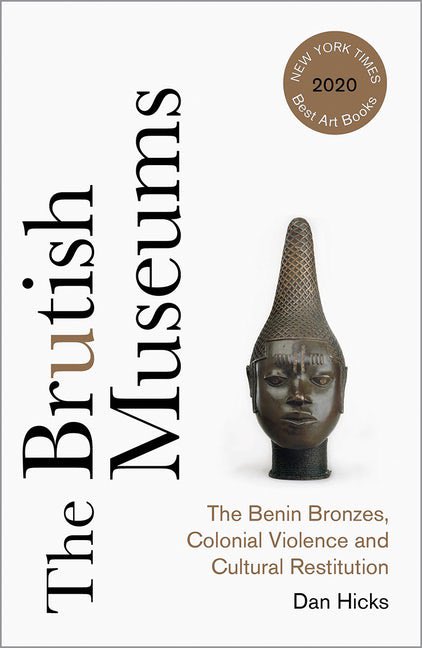
THREAD - a quick commentary on what today's massive news of the @smithsonian committing to returning its entire Benin 1897 collection means
https://twitter.com/profdanhicks/status/1501198260068917255
1/14 this announcement by the Smithsonian is another sign that we are witnessing a fundamental global shift in the ethics of museum curation
in the past a self-selected handful of the richest and most powerful institutions has sought to control, dominate and close down the debate
in the past a self-selected handful of the richest and most powerful institutions has sought to control, dominate and close down the debate
2/ but since the 1990s restitution has become a mainstream part of professional practice in the very different historical circumstances of returning Nazi loot or ancestral human remains to Indigenous people around the world.
3/ the old entrenched position that African cultural restitution should not be approached on the same case-by-case basis has become increasingly hard to justify and out of step with public sentiment, and even more so in the wake of major advances for the movement for Black lives
4/ in the wake of the Sarr-Savoy Report and recent French returns to Bénin, Madagascar and Senegal, in this anniversary year of 2022—which marks 125 years since the British sacking of Benin City and the chaotic looting of these artworks and treasures—something new is happening
5/ crucially, we've also seen a renewed awareness of the enduring historical connections between legacy museum collections, historic military looting, and outdated ideologies of cultural supremacy. This has led to new demands for transparency over what exactly is held and where
6/ people used to assume the Benin Bronzes are all in the British Museum. But as I showed in #BrutishMuseums in fact the >10,000 items looted in 1897 are now in >160 museums around the world: 45 in the USA, 43 in the UK, 24 in Germany— plus Ireland, Canada, Portugal, Sweden, etc
7/ in each one of those museums, audiences, stakeholders and communities are now in their own local dialogue with museum curators about what exactly is held from the continent of Africa, how it got there — and whether someone, somewhere is asking for its return
8/ It's shameful that cultural leadership on this question is coming not from London but from Berlin and now Washington, DC
With each institution that makes returns museum-goers across the world increasingly ask themselves:
*How near am I right now from a looted Benin Bronze?*
With each institution that makes returns museum-goers across the world increasingly ask themselves:
*How near am I right now from a looted Benin Bronze?*
9/ and from Detroit to Los Angeles, from Harvard and Yale and to Brown and Berkeley, from Manchester to Amsterdam, from Vancouver to Brussels, the answer is closer to home than you might think
a new conversation is taking place among those who love their local museums
a new conversation is taking place among those who love their local museums
10/ Meanwhile the @britishmuseum still holds onto the old 20th-century fantasy that it might merely loan back what was stolen from others, rather than making permanent, unconditional returns. In refusing to embrace change they are simply making themselves obsolete and irrelevant
11/ in the case of Benin 1897 the argument for returns has been won. The Smithsonian are to be congratulated for offering leadership on the question of African restitution. This isn’t a question of ‘sending back’, but of being open to give back when asked, on a case-by-case basis
12/ and of course, it’s about the many new possibilities that emerge in the space that restitution opens up, for new equitable forms of collaboration between African and Euro-American institutions, scholars, communities, and museum-goers
13/ we’ve never needed world culture museums more than we do today—as places to celebrate art and culture beyond the old Eurocentric lens
but that doesn’t mean that we can’t imagine museums where nothing is stolen—and demands for returns are treated with an open mind
but that doesn’t mean that we can’t imagine museums where nothing is stolen—and demands for returns are treated with an open mind
14/ restitution is a key part of how we remake the world culture museum as fit for the 21st century
so bravo Smithsonian for advancing that urgent cause
which museum is next? how near are you right this moment from a looted Benin bronze?
here's Appendix 5 #BrutishMuseums 👇 ENDS


so bravo Smithsonian for advancing that urgent cause
which museum is next? how near are you right this moment from a looted Benin bronze?
here's Appendix 5 #BrutishMuseums 👇 ENDS



oh and just to note that among the Benin 1897 objects that will be returned by the @smithsonian there are at least eight former @Pitt_Rivers second collection objects, sold off in the 1960s and purchased by the Smithsonian, as documented in #BrutishMuseums
si.edu/search/collect…



si.edu/search/collect…




• • •
Missing some Tweet in this thread? You can try to
force a refresh






















